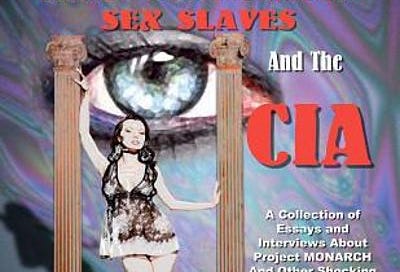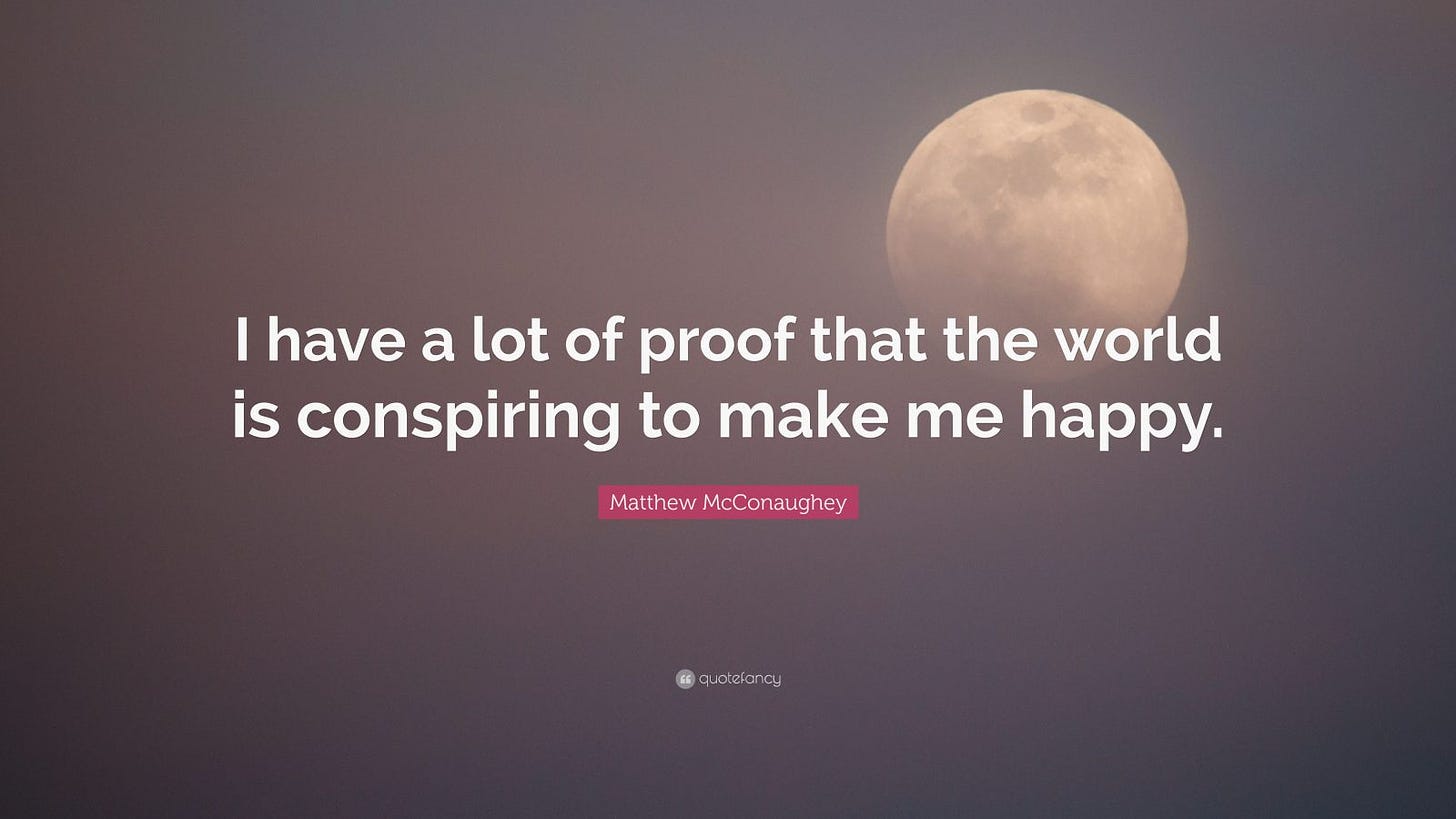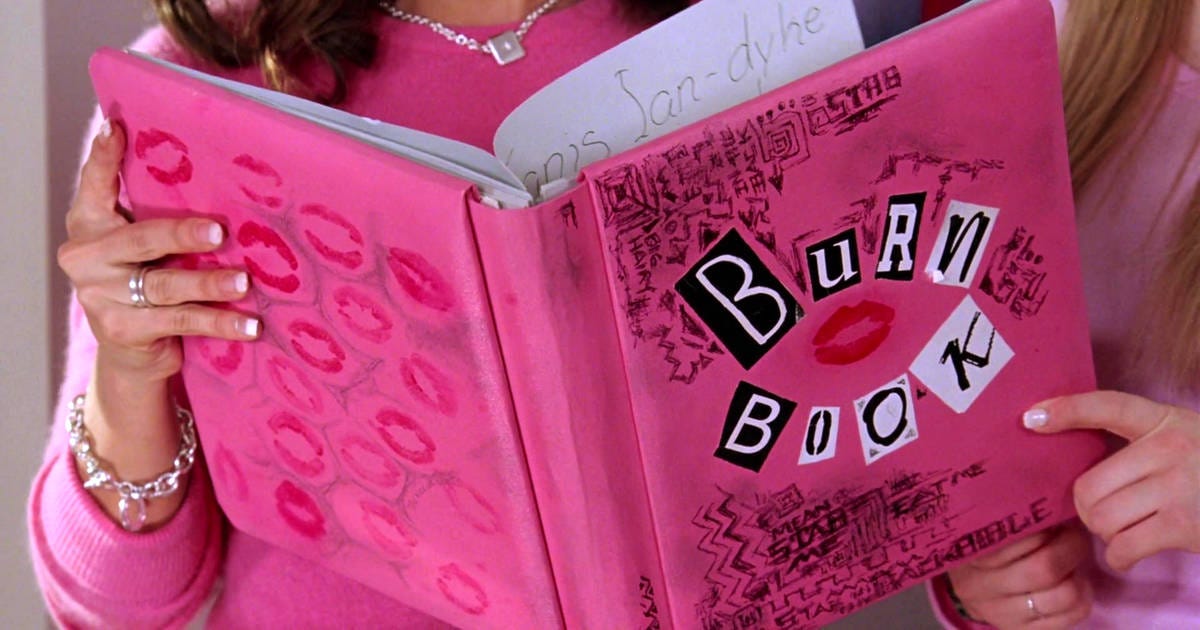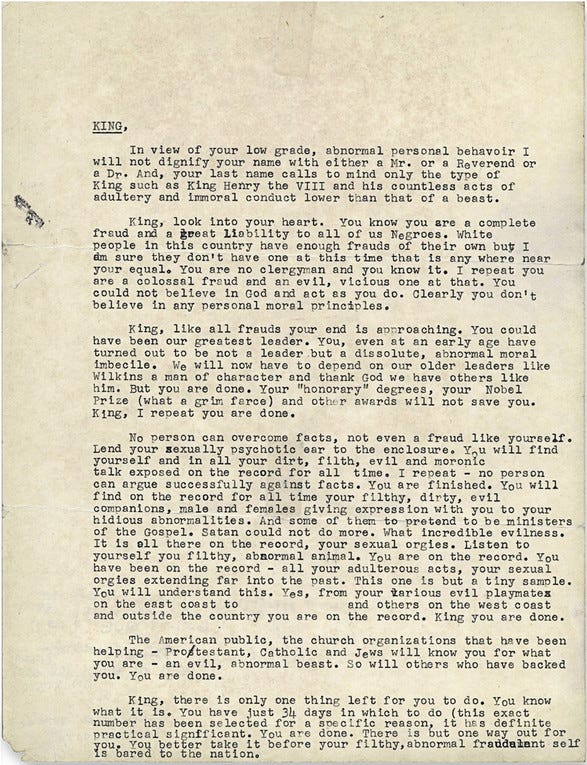The term “conspiracy theory” is squishy, fraught with negative connotations. Our most common text, Wikipedia, actually uses the word “sinister” in its definition. Legally, however, a conspiracy theory occurs when co-conspirators are found liable for one another’s actions “during the existence of and in furtherance of a conspiracy.” Nothing necessarily sinister there — in fact, this quote from Matthew McConaughey’s memoir/life advice book, Greenlights, comes to mind:
A sociologist would veer darker, explaining conspiracy theory as an attempt to interpret tragic events as the actions of — here’s a great word we only use when discussing conspiracy — a cabal. Because of the January 6th Insurrection (and for a lot of other reasons), we take conspiracy theories more seriously than we ever have. Small groups of conspirators (the “cabal”) now act as synecdoche for larger institutions. I.e., Pizza Gate is technically about the machinations of Hillary Clinton but really it’s about the machinations of the entire left wing.
The whole thing leaves me a little nostalgic for back when conspiracy theories were sort of cute, quaint, too kitsch to be of serious consequence. In the ‘90’s, the term evoked Unsolved Mysteries or Alien Autopsy or Mel Gibson covering his apartment in aluminum foil. Best of all: Fox Mulder and his office with its corkboards equally invested in cryptids and deep state government cover ups.
More sinister images come to mind now — mostly of rage-gorged men screaming into a microphone. Alex Jones. Glenn Beck. The ex-president. As you’ve probably heard, many of the conspiracies espoused by these men have recently crystallized into Oliver Anthony’s three-minute self-released country-folk “anthem,” “Rich Men North of Richmond.”
Last week, Ted Cruz* added to this song’s momentum by endorsing it in a set up for a joke about Hunter Biden. Much more hilarious than Cruz’s joke, Anthony quickly turned to YouTube to explain (kind of),
That song has nothing to do with Joe Biden, you know? It’s a lot bigger than Joe Biden. That song was written about the people on that stage. And a lot more too, not just them. But definitely them.
Definitely them, a comment that once again points to the fact that the Guys Who Support Rich White Guys** are Not Okay. Post the publication of my book (which deals with the Project Monarch conspiracy) I’ve gotten the chance to speak with a handful of journalists who devote their lives to covering conspiratorial behavior and beliefs.
One of the main things I’ve been interested in speaking with them about is the gendered nature of conspiracy and the way conspiratorial thought seems ironically attractive to those least likely to actually be conspired against.
A study co-authored by professors Joanne Miller, Erin Cassese, and Christina Farhart shows that one of the major dispositional factors influencing the tilt toward conspiratorial beliefs among men is a rising sense of “learned helplessness,” especially in reaction to COVID-19. Miller defines learned helplessness as the tendency for,
Some people, when faced with repeated failures at trying to affect positive change in their lives [to] come to believe that they are helpless to control the things that they want to control.
Confronted with powerlessness, men are more likely to try to develop theories that will preserve their personal ideology while also positioning their powerlessness within a vaster global schematic.
Civil liberties lawyer Frank Donner theorizes that,
In times of stress, exaggerated febrile explanations of unwelcome reality come to the surface of American life and attract support.
Heinous events like school shootings, presidential assassinations, and bombings are the “unwelcome realities” that make way for an explanation, any explanation. The logic follows that more outlandish conspiracy theories are called for in response to the intensity of the unexplainable suffering that must be accounted for. Historically, the job of accounting for has fallen mostly to powerful men.
Maybe conspiracy just looks a lot less cute on women. I refer once again to the advice of Our Lord & Savior Taylor:
Silence speaks so much louder than screaming tantrums. Don’t ever give them a reason to call you crazy.
Maybe this messaging resonates more if you grew up mainlining The X Files. While I definitely sat on the couch in an oversized I Want To Believe T-shirt every Friday, I also knew Scully’s cool detachment, her logic and poise, where what I was supposed to aspire to. I don’t really feel the need to argue this point much — we all know the origins of the word hysteria and some of you are also probably familiar with how Freud gaslight all the women of Vienna.
Somewhat paradoxically, it’s the power afforded exclusively to the majority (white, middle-class men, regardless of class) that protects them against accusations of insanity, and, in fact, allows many of their insane dubious allegations to veer from fringe to perceived fact. Wikipedia has an entire page devoted to Trump’s conspiracy theories, including “Clinton Body Count” (which posits the Clintons murdered fifty or more of their associates) and “Windmills Cause Cancer” (which is what it sounds like), while Nixon kept an extensive enemies list on par with Regina George’s Burn Book.
Well, except that the Mean Girl’s entries were all true.
Actually, it strikes me that the only mainstream conspiracy theory of the century that has been true was put forth by women — #FreeBritney. I was obsessed with this conspiracy from the start. The details were just too incredible not to notice — my favorite is that Brit kept only 116 followers on Instagram as a flipped call for help: 911. While I love fan theories, what I’m actually more interested in are the fans themselves, or, the people who served as the theory’s engine. Mostly women, late thirties and under. The Scully demographic; culturally disinclined to embrace conspiratorial thought.
These are largely women who, like me, were teenage girls in the ‘90s. Who have a visceral memory of Britney rigging her school uniform into a Lolita costume in “Hit Me Baby, One More Time.” Who remember watching her hyper-speed sexual transformation from baby-voiced lollipop-sucker to sweat-drenched nymphomiac, weighed down with a not-so-subtly phallic banana yellow python. Women who remember how bad it was when she went “crazy,” how monstrously she was presented in the tabloids, her teeth actually bared.
So, while the job of accounting may fall mostly to powerful men, #FreeBritney (as well as the more recent #BritneyIsNotFree, which theorizes the Britney we’re seeing on Instagram is a deep fake and Britney is indeed still under the control of her management or, perhaps, is dead) suggests that the need for an account — a narrative that makes sense — is not gendered.
Anna Merlan, author of Republic of Lies: American Conspiracy Theorists and Their Surprising Rise to Power points out that while conspiracy theory is often championed by the powerful, most conspiracies are actually started by people who have been historically conspired against. In fact, as Merlan details, conspiracy theories are especially prevalent amongst Black Americans precisely because Black Americans have been repeatedly victimized by government conspiracies. Perhaps most famously, the Church Committee investigation into CIA crime revealed that the United States government actively engaged in a prolonged effort to disrupt the Civil Rights Movement. Worried that the Movement, (which he believed to be promoting communist ideologies) had grown too strong after Dr. Martin Luther King was awarded the Nobel Prize, FBI Director J. Edgar Hoover authored a letter threatening to blackmail King for adulterous activities.
Your “honorary degrees,” your Nobel Prize (what a grim farce) will not save you,” Hoover wrote. “You are done.”
I want to represent Hoover’s attempts to conspire against King in detail simply to emphasize the fact that some conspiracies are true, in all their seemingly novel, decidedly sinister detail.
The most interesting aspect of conspiracy theory is how it amplifies an idea, true or not, in order to articulate a dimension of culture or politics that is previously inarticulable. In this way, conspiracy theories themselves are neutral. The act of cryptology only becomes insidious when what is being decrypted is already writ large — in the instance of “Rich Men North of Richmond,” fatphobia, transphobia, a hatred of impoverished Americans, and general re-visitation to widely debunked conspiracies such as Pizza Gate. Last week, NPR’s UpFirst featured an expert on Domestic Terrorism at the Institute for Strategic Dialogue who explained of Anthony’s song, "mainstreaming this stuff helps to normalize it."
When considering conspiracy, I’ve learned to ask myself what is being normalized. In the case of #BritneyIsNotFree, it strikes me that what is being questioned is whether or not recent “cultural shifts” caused by movements like the Women’s March, #MeToo, #TimesUp, and the arrests of serial abusers have really changed anything? Sure, public documents attest Britney Spears was released from a conservatorship in November of 2021. We all saw her wedding photos posted to Instagram less than a year later. Any reasonable person would attest documented evidence overwhelming suggests Spears is, indeed, free.
But you can’t watch her twirl, makeup smeared, eyes vacant, alone in her mansion, and feel like she’s okay. #BritneyIsNotFree reads to me as a way to articulate the sense that after everything that’s happened and continues to happen and — worse — to threaten to happen, especially in the wake of the overturning of Roe v. Wade, none of us is “free” just yet.
My Camp rec this week is a YouTube video that I wish would get as many views as Oliver Anthony’s: Mulder’s Office Ambiance. Rain. Typing. Talking. In the spirit of Camp and rest as two complimentary forms of resistance, I suggest you soothe your parasympathetic nervous system with ASMR of Mulder doing paperwork.
*Correction: An earlier publication named “Ted Cruise,” not Ted Cruz. My dad immediately emailed to correct this error.
**I mean presidential hopefuls, their attorneys and fixers, and the people who vote for them generally here.
Thank you so much for reading, sharing, screenshotting, & forwarding this newsletter!
I’ll be going bi-weekly on this newsletter to spend more time working on my next book, CLOSELY HELD, a novel about a popstar reminiscent of Spears, Jessica Simpson, and Taylor Swift. CLOSELY HELD follows its main character from childhood to the end of her career, detailing the gradient shifts that occur as every aspect of her life is increasingly surveilled and controlled by her managements, husband, and fans in order to ask, basically, who are you if you’ve commodified your very interiority?











This was a fun read, thanks Candice. I remember in the early days of #FreeBritney, I completely fell down the rabbit hole and wanted desperately to believe it, but held back because I didn't want to be labeled as a conspiracy theorist and hold the stigma it entails for women. I enjoyed your commentary (and the ASMR Mulder video at the end). Thank you!